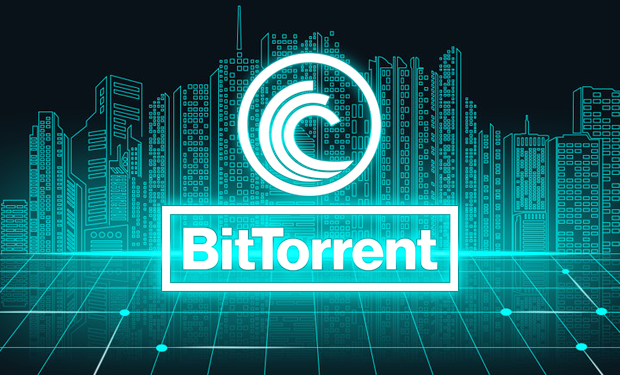-
 Bitcoin
Bitcoin $94,300.9547
-1.32% -
 Ethereum
Ethereum $1,800.1413
-1.39% -
 Tether USDt
Tether USDt $1.0004
-0.04% -
 XRP
XRP $2.1973
-0.87% -
 BNB
BNB $607.4764
0.00% -
 Solana
Solana $148.9786
-3.39% -
 USDC
USDC $1.0000
0.00% -
 Dogecoin
Dogecoin $0.1825
-1.65% -
 Cardano
Cardano $0.7102
-2.27% -
 TRON
TRON $0.2510
2.90% -
 Sui
Sui $3.4489
-7.66% -
 Chainlink
Chainlink $14.8727
-2.76% -
 Avalanche
Avalanche $21.9961
-3.61% -
 Stellar
Stellar $0.2891
-0.51% -
 UNUS SED LEO
UNUS SED LEO $9.0891
0.69% -
 Shiba Inu
Shiba Inu $0.0...01417
-0.07% -
 Toncoin
Toncoin $3.2809
1.30% -
 Hedera
Hedera $0.1928
-3.46% -
 Bitcoin Cash
Bitcoin Cash $361.3336
-3.92% -
 Polkadot
Polkadot $4.2764
-1.01% -
 Litecoin
Litecoin $86.4775
-0.69% -
 Hyperliquid
Hyperliquid $17.8052
-5.22% -
 Dai
Dai $1.0000
-0.01% -
 Bitget Token
Bitget Token $4.4049
-1.20% -
 Ethena USDe
Ethena USDe $0.9995
-0.03% -
 Pi
Pi $0.6462
-0.93% -
 Monero
Monero $229.3879
-0.06% -
 Pepe
Pepe $0.0...09201
2.04% -
 Uniswap
Uniswap $5.8080
-2.12% -
 Aptos
Aptos $5.5891
0.32%
What is BTT coin
BitTorrent Coin (BTT) plays a pivotal role within the BitTorrent ecosystem, serving as a medium for digital payments, content monetization, and enhanced file-sharing experiences.
Nov 10, 2024 at 11:44 am

Delving into the Realm of BTT Coin: A Comprehensive Exploration
Introduction
BitTorrent Token (BTT) emerged as a cutting-edge cryptocurrency designed to fuel the popular file-sharing platform BitTorrent. Its introduction aimed to revolutionize the decentralized torrent ecosystem, offering seamless transactions, incentivized participation, and enhanced content delivery.
Unveiling the Value Proposition of BTT Coin
BTT coin plays a pivotal role within the BitTorrent ecosystem, serving a multitude of functions:
- Digital Payment: BTT facilitates microtransactions for content creators and consumers, enabling seamless payments for file downloads, streaming, and other ecosystem-related services.
- Content Monetization: Creators can leverage BTT to monetize their content, earning rewards for sharing and distributing their work with the community.
- Enhanced File-Sharing: BTT incentivizes efficient and reliable file-sharing by rewarding those who contribute bandwidth and share content, improving the overall downloading experience.
- Network Governance: In the future, BTT holders may have the opportunity to participate in network governance, influencing decisions shaping the platform's development.
The BTT Project: Concept and Architecture
The BTT project operates on the Tron blockchain, benefiting from its scalability, low transaction fees, and vast user base. BTT leverages smart contract functionality to facilitate decentralized transactions and operates seamlessly with the TRC-10 token standard.
Understanding BTT's Tokenomics
- Circulating Supply: 990,000,000,000 BTT
- Max Supply: 990,000,000,000 BTT
Token Distribution:
- 19.5% for the founding team
- 19.5% for the BitTorrent team
- 10% for the Tron Foundation
- 30% for private sales
- 21% for public offering
Analyzing BTT's Price History and Market Performance
BTT has witnessed significant price fluctuations since its inception, shaped by market conditions, adoption rates, and platform developments such as partnerships and upgrades.
- Initial Coin Offering (ICO): BTT launched via ICO in January 2019, raising approximately $7.2 million.
- Post-ICO Performance: In 2019, BTT experienced a period of volatility, reaching an all-time high of $0.0018 in April and later retracing to $0.0005 in July.
- 2020 Bull Run: BTT surged alongside the broader cryptocurrency market in 2020, reaching a new all-time high of $0.017 in August.
- Recent Market Performance: In 2023, BTT has fluctuated within a range of $0.0007 to $0.001, mirroring overall market sentiment.
Exploring BTT's Ecosystem and Partnerships
The BTT ecosystem continues to expand, with collaborations and integrations fostering its growth and adoption:
- BitTorrent Speed and µTorrent Classic: BitTorrent's flagship products have incorporated BTT functionality, enabling users to earn and spend BTT for enhanced file-sharing experiences.
- TRON (TRX): BTT leverages the Tron blockchain for enhanced scalability and liquidity, contributing to its integration within the Tron ecosystem.
- DLive and BitTorrent Live: These streaming platforms have partnered with BTT, allowing creators to monetize their content and viewers to support their favorite creators using BTT.
Weighing the Pros and Cons of BTT Coin
Pros:
- Integral to the BitTorrent Ecosystem: BTT is deeply embedded within the BitTorrent platform, offering practical utility for content creators and consumers.
- Potential for Adoption: The vast user base of BitTorrent products and services creates significant potential for BTT adoption and demand.
- Low Transaction Fees and High Throughput: BTT transactions on the Tron blockchain are characterized by low fees and rapid processing, enhancing user experience.
Cons:
- Competition: BTT faces competition from other file-sharing platforms and native cryptocurrencies within the content distribution space.
- Market Volatility: The cryptocurrency market is inherently volatile, and BTT's value is susceptible to external factors and market sentiments.
- Limited Use Cases Outside the BitTorrent Ecosystem: Currently, BTT's utility is primarily confined to the BitTorrent ecosystem, limiting its broader market appeal.
Disclaimer:info@kdj.com
The information provided is not trading advice. kdj.com does not assume any responsibility for any investments made based on the information provided in this article. Cryptocurrencies are highly volatile and it is highly recommended that you invest with caution after thorough research!
If you believe that the content used on this website infringes your copyright, please contact us immediately (info@kdj.com) and we will delete it promptly.
- Bitcoin Whales Are Waking Up: Massive Accumulation Signals Incoming Volatility
- 2025-04-26 23:15:12
- Coldware (COLD): A Meme Coin with a Purpose
- 2025-04-26 23:15:12
- Swiss National Bank (SNB) President Martin Schlegel Rejects Holding Bitcoin Reserves
- 2025-04-26 23:10:12
- The $TRUMP memecoin has surged 73%
- 2025-04-26 23:10:12
- Ozak AI (OZ) Emerges as a Powerful Growth Candidate
- 2025-04-26 23:05:11
- After Gold Cools, Is It Finally XRP's Time to Shine?
- 2025-04-26 23:05:11
Related knowledge

What is Ethereum’s Slashing mechanism and how to punish malicious behavior?
Feb 20,2025 at 03:08am
Key PointsOverview of slashingDifferent types of slashing in EthereumIncentives and consequences of slashingIdentifying and reporting slashed validatorsOngoing discussions and potential improvementsEthereum's Slashing Mechanism: Punishing Malicious BehaviorEthereum's slashing mechanism is an essential tool for ensuring network security and punishing mal...

What is the verifier node of Ethereum and how to become a verifier?
Feb 19,2025 at 06:00pm
The Verifier Node of Ethereum: A Comprehensive GuideKey Points:What is a Verifier Node?How to Become a Verifier NodeResponsibilities and Rewards of a Verifier NodeMinimum Requirements for Becoming a Verifier NodePotential Difficulties in Running a Verifier Node1. What is a Verifier Node?A Verifier Node is an independent entity on the Ethereum network th...

What is Ethereum’s staking, and how to participate and earn money?
Feb 19,2025 at 04:37pm
Key Points:Understanding Ethereum's Staking MechanismSteps to Participate in StakingBenefits and Rewards of StakingSecurity and Risk ConsiderationsTechnical Requirements and Hardware OptionsPotential Challenges and Troubleshooting TipsFAQs on Ethereum StakingWhat is Ethereum's Staking?Proof-of-Stake (PoS) is a consensus mechanism used in blockchain netw...

What is Ethereum’s DAO (Decentralized Autonomous Organization) and how does it work?
Feb 20,2025 at 03:12am
Key PointsDefinition and Structure of a DAOGovernance and Decision-Making in DAOsBenefits and Use Cases of DAOsChallenges and Limitations of DAOsWhat is Ethereum's DAO (Decentralized Autonomous Organization) and How Does It Work?Definition and Structure of a DAOA Decentralized Autonomous Organization (DAO) is an innovative governance and management fram...

What is Ethereum's multi-signature wallet and how to improve security?
Feb 20,2025 at 02:18pm
Key Points:Understanding the Concept of a Multi-Signature WalletBenefits and Drawbacks of Multisig WalletsRequirements for Setting Up a Multisig WalletStep-by-Step Guide to Generating a Multisig WalletImplementing Strategies for Enhanced Security1. Understanding the Concept of a Multi-Signature WalletA multi-signature (multisig) wallet in the Ethereum e...

What is Ethereum's oracle and how to provide data for smart contracts?
Feb 21,2025 at 01:30am
Key Points:Understanding the concept of oracles in EthereumExploring different types of oraclesDetailed guide on how to provide data for smart contractsAddressing potential challenges and considerationsWhat is Ethereum's Oracle?Oracles are crucial components in the Ethereum ecosystem, enabling smart contracts to access real-world data and off-chain even...

What is Ethereum’s Slashing mechanism and how to punish malicious behavior?
Feb 20,2025 at 03:08am
Key PointsOverview of slashingDifferent types of slashing in EthereumIncentives and consequences of slashingIdentifying and reporting slashed validatorsOngoing discussions and potential improvementsEthereum's Slashing Mechanism: Punishing Malicious BehaviorEthereum's slashing mechanism is an essential tool for ensuring network security and punishing mal...

What is the verifier node of Ethereum and how to become a verifier?
Feb 19,2025 at 06:00pm
The Verifier Node of Ethereum: A Comprehensive GuideKey Points:What is a Verifier Node?How to Become a Verifier NodeResponsibilities and Rewards of a Verifier NodeMinimum Requirements for Becoming a Verifier NodePotential Difficulties in Running a Verifier Node1. What is a Verifier Node?A Verifier Node is an independent entity on the Ethereum network th...

What is Ethereum’s staking, and how to participate and earn money?
Feb 19,2025 at 04:37pm
Key Points:Understanding Ethereum's Staking MechanismSteps to Participate in StakingBenefits and Rewards of StakingSecurity and Risk ConsiderationsTechnical Requirements and Hardware OptionsPotential Challenges and Troubleshooting TipsFAQs on Ethereum StakingWhat is Ethereum's Staking?Proof-of-Stake (PoS) is a consensus mechanism used in blockchain netw...

What is Ethereum’s DAO (Decentralized Autonomous Organization) and how does it work?
Feb 20,2025 at 03:12am
Key PointsDefinition and Structure of a DAOGovernance and Decision-Making in DAOsBenefits and Use Cases of DAOsChallenges and Limitations of DAOsWhat is Ethereum's DAO (Decentralized Autonomous Organization) and How Does It Work?Definition and Structure of a DAOA Decentralized Autonomous Organization (DAO) is an innovative governance and management fram...

What is Ethereum's multi-signature wallet and how to improve security?
Feb 20,2025 at 02:18pm
Key Points:Understanding the Concept of a Multi-Signature WalletBenefits and Drawbacks of Multisig WalletsRequirements for Setting Up a Multisig WalletStep-by-Step Guide to Generating a Multisig WalletImplementing Strategies for Enhanced Security1. Understanding the Concept of a Multi-Signature WalletA multi-signature (multisig) wallet in the Ethereum e...

What is Ethereum's oracle and how to provide data for smart contracts?
Feb 21,2025 at 01:30am
Key Points:Understanding the concept of oracles in EthereumExploring different types of oraclesDetailed guide on how to provide data for smart contractsAddressing potential challenges and considerationsWhat is Ethereum's Oracle?Oracles are crucial components in the Ethereum ecosystem, enabling smart contracts to access real-world data and off-chain even...
See all articles























































































